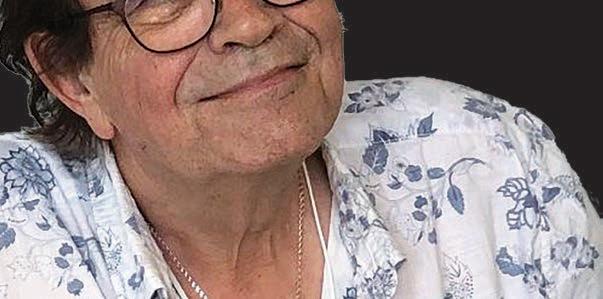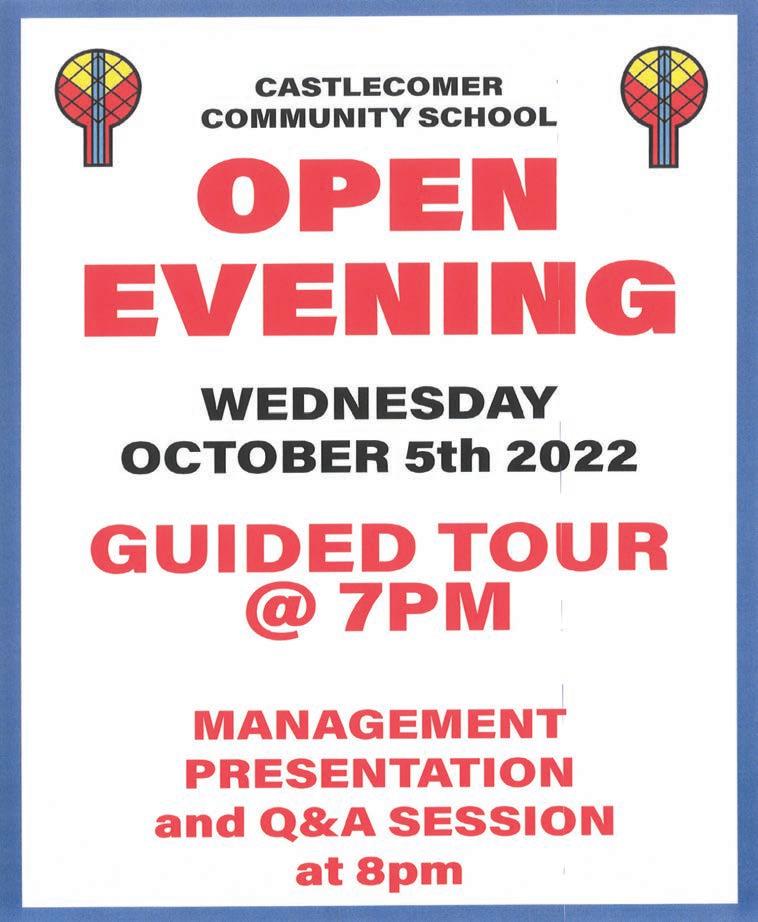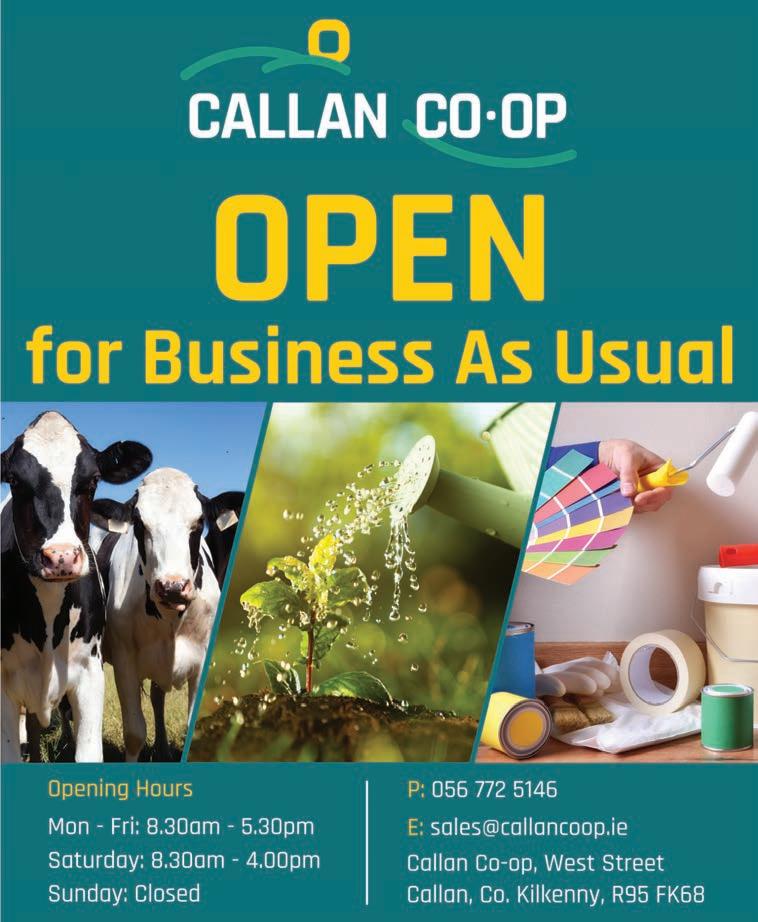
9 minute read
Paul Hopkins
The Fact OfThe Matter

Advertisement


PAUL HOPKINS Energy spent on getting underpants in a twist
It hasn’t gone away, you know. Covid-19. But this time around it won’t be the coronavirus that will be making the breaking news.
Although the men and women in white coats are warning of another tough few months when the virus could reappear as another variant, or the combination of a coronavirus surge and the regular flu could see a short, sharp shock for hospitals. That said, some medical experts argue we may have put the worst of the rogue microbe behind us. We’ll see.
In the meantime, however, we have more pressing problems – the shortage of teachers, the closing of creches, the shortage of medics and hospital beds, the two-year queues to see a cardiac or oncology consultant, the CAMS catastrophe, the closure of banks and credit unions and the cutbacks in citizen bureaus. The insufficientlythought-out refugee fiasco. I could go on but let’s just stop right here and agree that the two biggest issues facing us in the coming winter of discontent are the rapidly rising shortage of housing and accommodation — and the spiralling costs of what is available — and, yep, the ridiculous rise of energy costs, goaded by global inflation — cyclical, but that’s for another day’s debate — and Putin’s ongoing madness to take over the world.
A new EU poll – don’t you just love surveys! – says we Irish are more worried about the rising cost of living, housing and healthcare than most of our European counterparts. A majority (65%) of Irish people say price hikes are the biggest issue facing the country, compared with 54%. on average across the bloc.
According to Eurostat, housing comes second in our list of concerns, with healthcare third. Luxembourg is the only EU country that saw a higher proportion, 51 per cent, mention housing as a key issue.
Accommodation is a key issue. With colleges returning to on-site classes many now face long daily journeys to campus, with others deferring for a year or giving up on going to college altogether because they can’t find a place to put their head down, or if they do the rent is way beyond their means. That, alongside an estimated 1,000 people from Ukraine arriving here weekly and in need of a home, sees the situation long beyond serious.
Education Minister Simon Harris’s suggestion that the public should consider taking in students, because they could earn up to €14,000 a year, taxfree, gives not one notion to the possible social and legal implications of such, regarding insurance implications or potential bad behaviour.
What is really happening here, Minister Harris, is that the Government has now entered ‘super-crisis’ mode when it comes to housing. Years of being told that we weren’t building enough houses and doing very little to address the problem has come home to roost – with catastrophe looming large.
To heap insult on injury, comes the news that property prices will continue to soar beyond Celtic Tiger levels in the coming months, despite the costof-living crisis and fears of global economic slowdown, according to the Banking and Payments Federation Ireland (BPFI).
The banking lobby group says that continued supply of housing is required to stem house price increases and improve affordability.
On a brighter note, Taoiseach Micheál Martin has given the strongest indication yet that energy companies making huge profits will be hit with a windfall tax to fund help for homes and businesses – given the out-of-control price hikes, that’s funding for each and every one of us – to meet the crazier costs.
It seems the EU is likely to make huge interventions in the energy market under plans that include a levy on huge electricity and energy company profits, and potential caps on gas prices.
I wait to be convinced that any moves will be sufficient enough to stave off a winter of discontent and hard times.
Mind you, I had long left home before my parents had central heating installed in the home of my upbringing, a home where wall-to-wall lino was considered ‘posh’ and a bath was a weekly event. I recall many a winter’s morn scraping, with abandoned joy, the gathered frost off the inside of my bedroom window. And I recall, with some horror, school mornings in winter and I crouched precariously over the one-bar electric fire trying to get my underpants on and shaking in the process with the bitter cold.
A the end of the day, it did me no harm.
Meanwhile, it seems our political masters and those in ‘power’ have got their underpants in a right twist.
Marianne Heron, P.12



More boosters on the way
From early October all people who are eligible for a Covid19 booster will be o ered new Omicron jabs but they could be for di erent strains of the subvariant.
Some people will be o ered a P zer or Moderna vaccine to protect against the BA.1 form of Omicron which was circulating here earlier this year.
Others will be o ered a P zer vaccine protecting against BA.4 and the current dominant BA.5 form of Omicron. e HSE has con rmed that it "has secured su cient adapted vaccine supply for eligible groups” from early October.
However, not everyone will be o ered the P zer vaccine protecting against the main form of Omicron, BA.5 now causing most infections.,
ey could be o ered a separate vaccine targeting the BA.1 strain which hit Ireland earlier this year and is made by P zer and Moderna. e bivalent vaccines are the rst to provide protection against Omicron and the original Wuhan variant.
Existing vaccines will continue to be used for primary vaccination where people are getting vaccinated for the rst time. e HSE said these are "very e ective vaccines”.
Eligible people under 29 will only be given the P zer boosters.
Meanwhile, Ireland South MEP Deidre Clune is consulting top international experts about the continuing ght against Covid-19.
As a member of the European Parliament’s Special Committee on the pandemic, the Fine Gael representative is attending meetings at the European Medicines Agency in Amsterdam and the vaccine manufacturer BioNTech in Germany.
MEP Clune told e Kilkenny Observer: “ is fact- nding mission will be key to the committee’s task of analysing the EU’s response to the crisis and learning lessons for the future.
"We have travelled to EMA’s headquarters to quiz management and sta , including Executive Director Emer Cooke, about their role in the development, evaluation, approval and monitoring of Covid-19 vaccines." e delegation will also study the manufacturing process of mRNA vaccines, at the BioNTech laboratories in Mainz. Stay safe...
Refugees told 'go now to Kilkenny'
Fifteen Ukrainian families cared for by a community organisation in Co. Laois were "given a day’s notice to leave their homes" and be moved to Kilkenny. Among those were at least 15 children who had settled into local and and also children with special needs Laois Integration Network (LIN) are shocked that the families have been given just over a day’s notice to move to accommodation in Kilkenny. e noti cation was given by the International Protection Accommodation Service (IPAS) to Dídean housing agency in Portlaois which had housed these families. LIN understands Ukrainian families were noti ed on Tuesday September 20 at 4.30pm that they were to be out of their houses by 11am on ursday September 22. " is is absolutely crazy," commented Karen McHugh, Chairperson of LIN. We are very concerned, especially as it's during school term. “Furthermore, some of the parents are working locally."


Our scientists scoop Euro award!
e new deadline for completed submissions for the BT Young Scientist competition been extended is Monday, October 3, at 5pm. e news comes as the winners of the 2022 BT Young Scientist & Technology Exhibition (BTYSTE), Aditya Kumar and Aditya Joshi [pictured above], have scooped rst place prize at this year’s European Union Contest for Young Scientists (EUCYS) with their project entitled 'A New Method of Solving the Bernoulli Quadrisection Problem.
To celebrate their brilliant achievement BT Ireland have decided to extend the entry submission deadline for this year’s competition and exhibition. is new deadline will allow as many young people as possible to showcase their STEM skills at the most prestigious exhibition in Europe. Participating students will be in the running to win over 200 prizes across all four categories and age groups. e overall winners will take away the top prize of €7,500 and go on to represent Ireland at EUCYS in Brussels 2023, where they will be in with the chance of taking home Ireland’s 18th rst place win.
Mari Cahalane, Head of the BTYSTE, said: “I am incredibly proud of our BTYSTE 2022 winners, Aditya Kumar and Aditya Joshi, who represented Ireland so well at this year’s European Union Contest for Young Scientists. To take the rst place prize at EUCYS is a tremendous achievement for them and a credit to their supportive families, school and teachers who have helped them along this journey."
Aditya Kumar and Aditya Joshi both attributed their EUCYS success to the support from the BTYSTE organisers in the months following their win last January. ey said: “We’re still in shock at receiving such a positive response in Europe to our project, and we know we would never have made it to Europe if we didn’t take part in BTYSTE last January. We’ve been guided along the way by our school and the BTYSTE team, it’s hard to put into words what winning at EUCYS means to us."
Using satellites to aid our farmers
Using measurements from space to help Irish farmers manage their farms may sound like science ction but it’s actually science fact. Realtime information about soil moisture is an essential tool for farmers when planning and managing the e cient use of their land and a VistaMilk study is using satellites in earth’s orbit to collect that information. e research project is utilising imagery from the Europe Space Agency’s Sentinel satellites to map soil moisture in Ireland, with the capability of focusing in on areas as small as 10 square metres. e data gathered could be used to help farmers make decisions about which elds to allow their livestock feed while maintaining optimal grazing and grass growth, which elds require drainage or even wetting, and potentially when to add or reduce use of fertilisers and slurry.
Rumia Basu, a VistaMilk PhD student from Teagasc, who is running the project said: “ e importance of understanding the soil moisture levels both historically and on a given day is an essential part of daily farming particularly as decisions made can impact not only production outputs but also the environment. e models we are developing that will provide real time information to assist farmers in their decision making is leading-edge and – due to Irelands climate – quite unique.
“Using high resolution satellite radar data which is available in all weather, day or night, combined with optical observation data allows us to provide daily information that one day we hope will be available on an app that farmers can use," he said.









